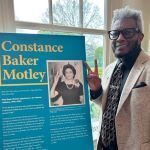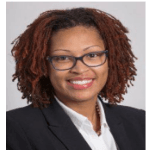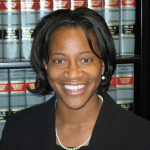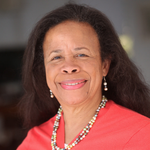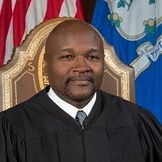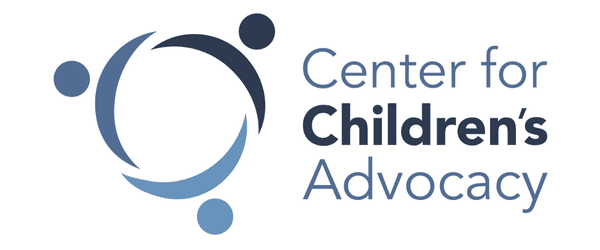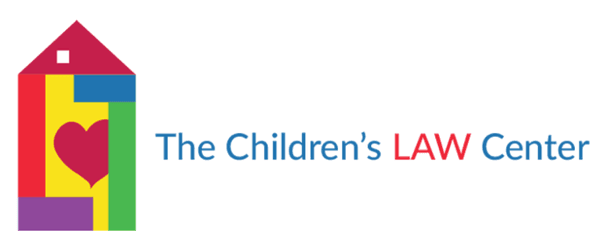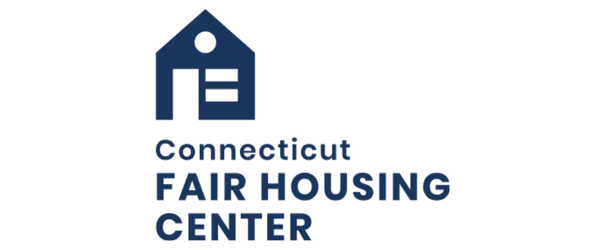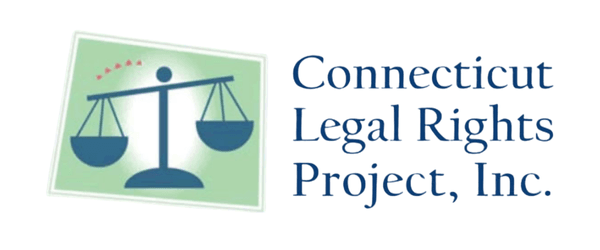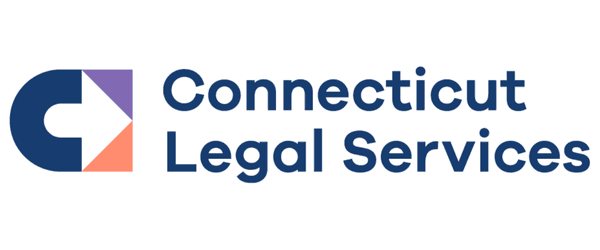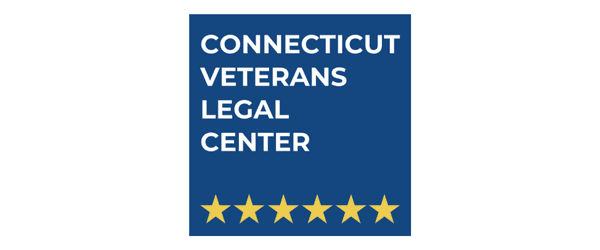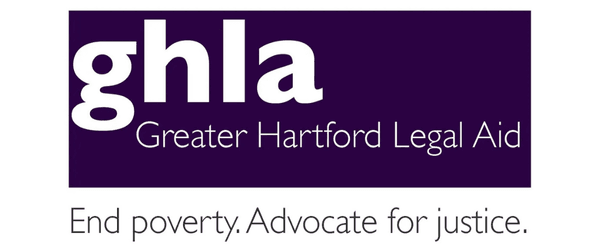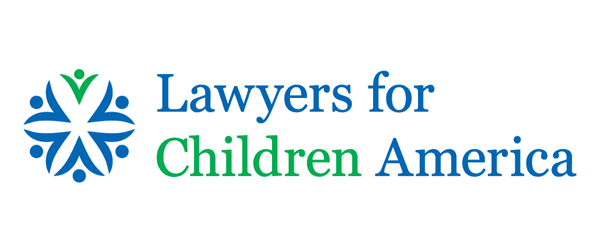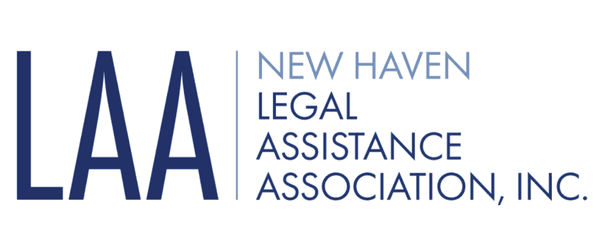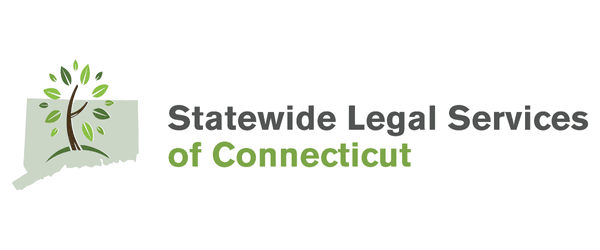CONNECTICUT BAR FOUNDATION and CONNECTICUT BAR ASSOCIATION
are honored to present the
Constance Baker Motley Speaker Series on Racial Inequality
An ongoing forum for the Connecticut legal community to explore issues of racial inequality and systemic racism.
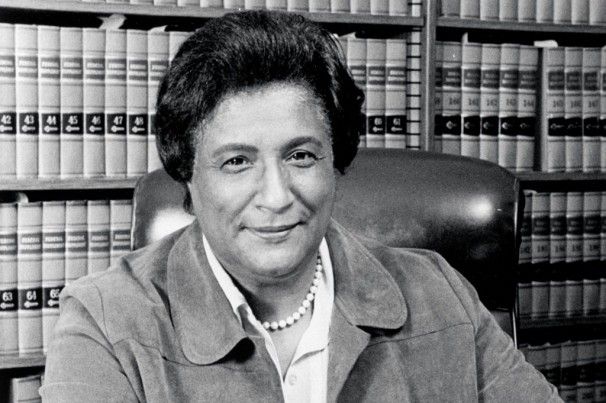
This series is named in honor of civil rights trailblazer Judge Constance Baker Motley
with the goal of supporting and fostering renewed commitment to advancing civil rights and social justice.
Upcoming Events
Past, Present and Future Impact of the History of Slavery in CT: Part 1 - Past
Wednesday, March 12, 2025, 5:30 PM to 7:30 PM (Eastern Daylight Time)
During this multi-part series, attendees will explore the history of slavery in Connecticut through a legal lens. During this first part of the series, attendees will discuss the history of slavery and its legality in the northern/New England states in the antebellum period, the early abolition movement, the economic impact of slavery during this time, and Connecticut’s gradual emancipation law, which resulted in slavery continuing in Connecticut as late as 1848, when there were only a handful of persons enslaved in the state. Later events in the multi-part series will examine the ways that the present legal sphere was shaped by CT’s history of slavery and explore current and future initiatives engaging with that history.
Cost: Free
CT: 2.0 CLE Credits (Ethics)
Speakers
Moderator
Past Events
Past is Present: How Racism Has and Does Shape Immigration in America
Wednesday, February 5, 2025, 5:30 PM to 7:30 PM (Eastern Daylight Time)
Join us for a conversation with a panel of esteemed professors who will discuss the history of American immigration laws, the motivations behind the enactment of various statutes and their racially disparate impact over the course of the last hundred and fifty years.
Cost: Free
CT: 2.0 CLE Credits (Ethics)
Speakers
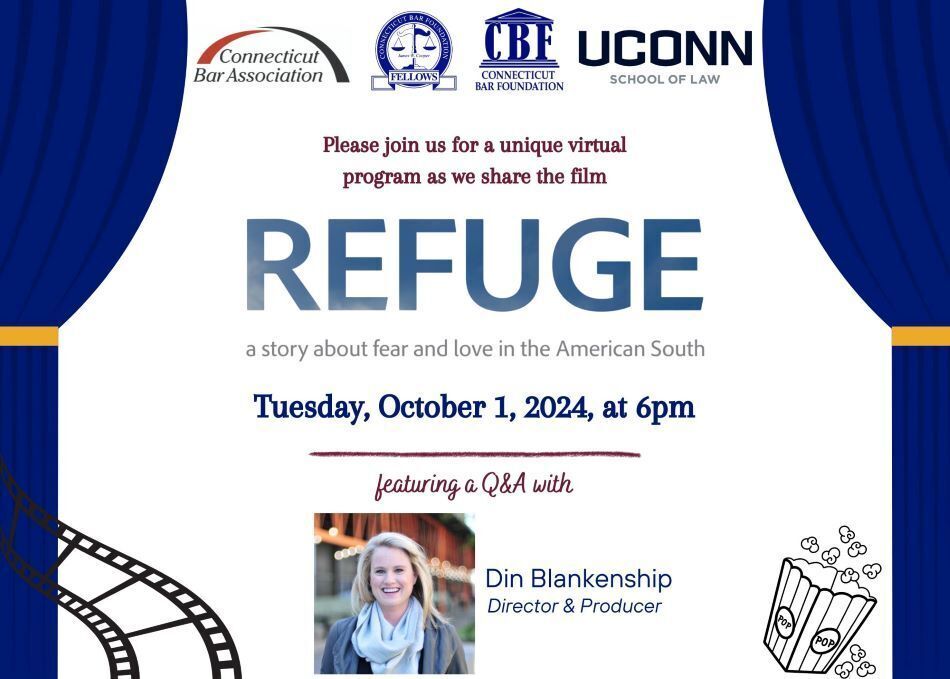
Race Is Evidence: Exploring Discrimination in the Rules of Evidence
Tuesday, May 28, 2024, 5:30 PM to 7:30 PM (Eastern Daylight Time)
The Rules of Evidence are used on a daily basis in the legal system, but little thought is given to how those rules reflect the cultural norms, sensibilities, and racial biases operating at an institutional and societal level at the time they were written. Practitioners and laypeople alike may believe that the Rules of Evidence are unbiased and equitable, but we find racially coded language throughout, and the application of these rules cannot escape the system in which they are employed. Oftentimes, race and racism themselves are used as de facto evidence and sources of proof. This program explored the development of the Rules of Evidence, examining what was going on at the time the rules were developed, the many examples of how parties do not experience equitable evidentiary burdens, and the negative effect that racially-biased use of the Rules of Evidence can have on the economic empowerment of people of color. From lack of evidentiary scrutiny to the introduction of antiracist expert evidence, we can see how race is used as a proxy for credibility and character, further enflaming racial stereotypes and negatively influencing jurisprudential decision-making.
Cost: Free
CT: 2.0 CLE Credits (Ethics)
Speakers
Unpacking Barriers to Voting During an Election Year
Wednesday, April 24, 2024, 5:30 PM to 7:30 PM (Eastern Daylight Time)
The right to vote is the foundation of American democracy, enabling the ordinary citizen to raise their voice to reflect the collective will of the American people. But can the promise that a vote represents be realized when voters are confronted with significant obstacles to exercising that right? For generations, Black voters and other voters of color have faced discriminatory policies and other obstacles that disproportionately affect their communities. These obstacles include limited polling places, long lines at the polls, voter identification laws, restrictive voting hours, and fewer opportunities to vote by mail.
New voting laws recently enacted were designed to and will affect the 2024 elections. Over the past few years, many of those laws have restricted voting and made it more burdensome. Yet some states have put forward new laws to make voting easier. How will these laws affect voting in America during this critical election year? Join us as we discuss.
Cost: Free
CT: 2.0 CLE Credits (Ethics)
Speakers
Moderator
Investigating Access to Public Spaces
Wednesday, February 21, 2024, 5:30 PM to 7:30 PM (Eastern Standard Time)
This panel discussion dove deep into the history of discrimination in the Nutmeg State, looking at who was—and was not—permitted access to our public spaces. We looked at how this was effectuated through town ordinances, zoning, and caselaw. The landmark CT Supreme Court decision in Leydon v. Town of Greenwich was central to this conversation. The panelists also surveyed where we are currently.
Cost: Free
CT: 2.0 CLE Credits (Ethics)
Speakers
Race, Pretrial Detention, and Disparate Outcomes
Thursday, December 7, 2023, 5:30 PM to 7:30 PM (Eastern Standard Time)
When it comes to pretrial release decisions, we know that anecdotally, race appears to be a factor in determining who is held and who is released. But research in this area confirms that behind these anecdotes is indeed hard data—statistics demonstrate the stark racial disparities and practical realities of who is held pretrial. This panel discussion explored that research, laying out the framework for these decisions as well as the risk assessment tools used as part of the calculation. And we took it further—exploring how the limitations of these risk assessment tools lead straight to inequality in the ultimate outcomes for these cases, and whether there is anything in the process or at the state legislative level that we can do to fix it.
Cost: Free
CT: 2.0 CLE Credits (Ethics)
Speakers
Moderator
We See Color: Affirmative Action’s Impact on Education & Its Future
Wednesday, September 27, 2023, 5:30 PM to 7:30 PM (Eastern Daylight Time)
The institution of affirmative action methodologies and requirements moved undergraduate and postgraduate schools to consider qualified students of all races, ethnicities, and genders in admissions decisions, thereby reducing discriminatory admissions practices. Consequently, student enrollments have more closely reflected representations of qualified students in relevant applicant populations. The Supreme Court’s decisions in the cases Students for Fair Admissions, Inc. v. Harvard and Students for Fair Admissions v. University of North Carolina have ended affirmative action admission practices. How could the removal of affirmative action affect college and law school admissions? What efforts can be made to preserve the rights of all applicants against discriminatory admission selection practices? How can we preserve diversity, equity, and inclusion in university and law school student bodies?
Cost: Free
CT: 2.0 CLE Credits (Ethics)
Speakers
Moderator
Summative Event - The Legacy of Judge Constance Baker Motley
Tuesday, June 13, 2023, 5:00 PM to 6:15 PM (Eastern Daylight Time)
The Constance Baker Motley Speaker Series on Racial Inequality's 2023 Summative Event will explore Judge Motley's legacy through the narratives of some of Connecticut's Black trailblazers. Our distinguished speakers will discuss the impact that Judge Motley had on their personal and professional lives. Through these stories, we will examine Judge Motley’s influence on education, criminal justice, her community, and the legal profession more broadly.
Cost: Free
CT: 1.25 CLE Credits (General)
Speakers
The Rage of Innocence: Race and the Criminalization of Adolescent Behavior
Wednesday, March 15, 2023, 5:00 PM to 6:30 PM (Eastern Daylight Time)
Weaving together powerful narratives and persuasive data, Professor Kristin Henning explores the criminalization of normal adolescent behaviors and makes a compelling case that racial disparities in the juvenile and criminal legal systems are deeply rooted in America's unfounded, and sometimes intentionally manufactured, fears of youth of color. Unlike white youth, who are afforded the freedom to test boundaries and figure out who they are and who they want to be, Black and Latino youth are seen as a threat and denied the privileges of healthy adolescent play, adventure, and experimentation. Professor Henning will examine the long-term consequences of racism and trauma that arise from the discriminatory and aggressive “policing” of Black and Latino youth and demonstrate how contemporary law enforcement practices have socialized a generation of teenagers to fear and resent the police. Drawing upon recent advances in cognitive science and developmental psychology, this session will consider how racial bias, stereotype threat, and the traumatic effects of policing impact every aspect of a criminal case, including criminal culpability, search and seizure, police interrogation, mitigation and sentencing.
Highlighting findings from her book, The Rage of Innocence: How America Criminalizes Black Youth, Professor Henning will offer practical insights for serving youth of color and transforming systems that harm youth and young adults.
Cost: Free
CT: 1.5 CLE Credits (Ethics)
The Rage of Innocence: How America Criminalizes Black Youth
by Kristin Henning
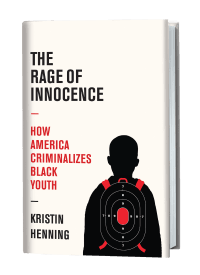
Speaker
Moderator
The World According to Dobbs: Racial Inequality and Stare Decisis
Tuesday, January 17, 2023, 5:00 PM to 7:00 PM (Eastern Standard Time)
The decision in Dobbs v. Jackson Women’s Health Organization (Dobbs) overruled Roe v. Wade (Roe) and held that there is no constitutional right to an abortion. This decision will impact all women, but will significantly impact women in communities of color. Women from minoritized communities, especially Black women, face systemic inequities in health care and reproductive care. Black women are more likely to need access to abortions and die during childbirth, infant mortality rates are higher in communities of color, and access to reproductive healthcare is also limited in many of these communities.
This session discussed the road to Dobbs, including the history and background of contraception and abortion rights, the reasoning behind the expansion of rights over time, the impact/relationship to other substantive due process cases, and the impact on women of color. In addition, we discussed legislative developments since the decision last June.
Cost: Free
CT: 2.0 CLE Credits (Ethics)
Speakers
Encouraging Equity in Special Education
Thursday, December 1, 2022, 4:00 PM to 5:30 PM (Eastern Standard Time)
Delivery of special education to students in Connecticut is a complex balance of interests between children, parents, schools, administrators, and government. Legal precedent and framework determine the rights and responsibilities of each participant and ultimately, the scope and quality of the special education students receive. This program explored Connecticut's special education system, the perspectives of parties involved, and the challenges and opportunities that arise in practice, all with the goal of encouraging equitable and excellent special education for all students.
Cost: Free
CT: 1.5 CLE credits (Ethics)
Moderator
Speakers
Disparate Outcomes in the Criminal Justice System: The Role of Prosecutorial Discretion
Wednesday, September 28, 2022, 5:00 PM to 7:00 PM (Eastern Daylight Time)
Prosecutors possess extraordinary discretion in deciding which cases and charges to pursue as well as which alternatives to consider. The exercise of this discretion plays a significant role in determining who ends up being convicted and for how long individuals are incarcerated. This program explored this prosecutorial power, discussed relevant Connecticut statistics of criminal justice outcomes and examined the important role of prosecutorial discretion in reducing the disparate racial impact of the criminal justice system.
Cost: Free
CT: 2.0 CLE Credits (Ethics)
Moderator
Speakers
"Civil Rights Queen" - A Conversation With Tomiko Brown-Nagin
Wednesday, June 8, 2022, 6:00 PM to 7:30 PM (Eastern Daylight Time)
This year’s series culminated on June 8 with a speaker event featuring Professor Tomiko Brown-Nagin. She discussed her book Civil Rights Queen: Constance Baker Motley and the Struggle for Equality. 2021 marked the 100th birthday of Judge Constance Baker Motley and 2022 marked the release of Professor Brown-Nagin's major biography on Judge Motley. Tomiko Brown-Nagin is an award-winning legal historian, and an expert in constitutional law and education law and policy. She is also Dean for the Radcliffe Institute for Advanced Study and Daniel P.S. Paul Professor of Constitutional Law at Harvard Law School, as well as Professor of History at Harvard University. In this discussion, she shared her research and experience in capturing Judge Motley's story as well as her insight as to Judge Motley's legacy in the present day.
Speaker
Moderators
Voting Rights 2: The Ongoing Battle at the Ballot Box
Tuesday, May 10, 2022, 5:00 PM to 7:00 PM (Eastern Daylight Time)
The November 3, 2020 presidential election gave rise to voter fraud claims in several states, demands for multiple recounts, numerous legal challenges, and violence at the US Capitol on January 6, 2021. These numerous voting fraud claims were refuted as unfounded and contrary to evidence. The 2020 election was confirmed to be “the most secure in American History” and free and fair, with no evidence of voter fraud. So why have over 30 states recently introduced legislation seeking to restrict voting access? Are these laws intended to ensure the integrity of the election process, or is their true purpose to limit citizens’ right to vote?
This 2-hour discussion drew on the experiences of legal academics, elected officials, and political observers. These experts explained how and why this legislation has become so widespread, and suggested what can be done to ensure that voters are not disenfranchised and remain free to fully exercise their right to vote. The webinar examined why this has become a national trend, how it affects us locally in Connecticut, and how it will impact future generations of voters. The panel also explored how the states passing this legislation are using it to perpetuate racial inequality in voting rights and political access. Picking up from where the August 2020 Motley Series event on voting rights left off, this program continued to analyze historical patterns and trends, and considered how systemic racism impacts voting rights and political access both on the national stage and in Connecticut. Our panelists are on the front lines of these voter battles in Connecticut, and have witnessed and studied how these policies seek to disenfranchise citizens, influence campaigns, and impact access to justice.
CT CLE Credits: 2.0 CLE Credits (Ethics) were available for attendance at this event.
Closed captioning was available during the seminar presentation for virtual attendees.
Speakers
Moderator
Critical Race Theory in Practice
Tuesday, March 22, 2022, 5:00 PM to 6:15 PM (Eastern Daylight Time)
Critical Race Theory (CRT) has been at the forefront of discussion in higher education and policy. This session explored the origins of CRT, the value of this approach in dismantling structural inequities in education, and criticisms as well as alternatives to CRT.
CT CLE Credits: 1.25 CLE Credits (Ethics) was available for attendance at this event.
Closed captioning was available during the seminar presentation for virtual attendees.
Speakers
Structural Racism, A “Systemic Illness”
Thursday, February 24, 2022, 5:00 PM to 7:00 PM (Eastern Standard Time)
A distinguished panel of doctors, public health, and legal professionals moderated by Professor Zita Lazzarini explorde how structural racism impacts the health of diverse populations in Connecticut. The panel discussed mechanisms through which structural racism increases health disparities, how to reduce its impact, and increase health equity.
Speakers
Moderator
Colorism Matters: Skin-tone bias and the DE&I and Belonging Conversation
Tuesday, February 8, 2022, 4:00 PM to 5:15 PM (Eastern Standard Time)
Professor Trina Jones, the Jerome M. Culp Distinguished Professor of Law at Duke University School of Law, took us on a journey to understand colorism and its impact on society, and particularly the legal profession. Professor Kathy Taylor lead us on a moderated discussion of colorism with Professor Jones.
Speaker
Moderator
The CBA Task Force's Recommendations on Policing in Connecticut
November 4, 2021, 5:00 PM to 7:00 PM (Eastern Daylight Time)
In the wake of the George Floyd homicide, a diverse group of attorneys, community members, and law enforcement leaders met on a weekly basis for over a year to discuss, research and make recommendations to the State legislature and other stakeholders regarding policing in Connecticut. It is anticipated their work will culminate in a written report to be publicly released this fall. In this session, leaders and key members of this Task Force shared what they learned and what they recommend we do to address the challenges in policing and to improve relations between police and the communities they serve.
Speakers
Moderator
The Trials of Constance Baker Motley: A Centennial Retrospective
September 21, 2021, 5:00 PM to 7:00 PM (Eastern Daylight Time)
September 14, 2021 marks what would have been the 100th birthday of Judge Constance Baker Motley. In this inaugural series event for the 2021-2022 bar year, we are celebrating the life and legacy of Judge Motley. We will start with a screening of The Trials of Constance Baker Motley, a 2015 documentary produced by her son, Joel Motley. The documentary spans her remarkable legal career, including, but not limited to, her work with Justice Thurgood Marshall and the NAACP and her landmark civil rights cases before the US Supreme Court, as well as her accomplishments as the first African-American woman elected to the New York State Senate, the first woman elected as Manhattan Borough president, and the first African-American woman appointed to the federal bench. The documentary will be followed by a discussion and reflection on Judge Motley with her son Joel W. Motley, niece Constance L. Royster, and former law clerk Daniel J. Steinbock.
Speakers
MODERATOR
The Color of Law: A Forgotten History of How Our Government Segregated America
June 15, 2021, 5:00 PM to 7:00 PM (Eastern Daylight Time)
Racial segregation characterizes every metropolitan area in the US and bears responsibility for our most serious social and economic problems. We’ve taken no serious steps to desegregate neighborhoods, however, because we are hobbled by a national myth that residential segregation is de facto—the result of private discrimination or personal choices that do not violate constitutional rights. The Color of Law demonstrates, however, that residential segregation was created by racially explicit and unconstitutional government policy in the mid-twentieth century that openly subsidized whites-only suburbanization in which African Americans were prohibited from participating. Only after learning the history of this policy can we be prepared to undertake the national conversation necessary to remedy our unconstitutional racial landscape.
Chief Justice Richard A. Robinson will facilitate a question and answer segment with Rothstein. A panel discussion will follow to highlight what has been done in the past year and how we will continue to address racial inequality in Connecticut in honor of the legacy of Hon. Constance Baker Motley.
Richard Rothstein is the author of "The Color of Law: A Forgotten History of How Our Government Segregated America", a "New York Times" Best Seller, and a distinguished fellow of the Economic Policy Institute, the Thurgood Marshall Institute of the NAACP Legal Defense Fund, and of the Haas Institute at the University of California (Berkeley). In addition to "The Color of Law", he is the author of many other articles and books on race and education.
Note: The first 100 attendees of this seminar who request a copy of featured speaker Richard Rothstein’s book, The Color of Law, will receive a free copy.
This event is one of the Evening Plenaries of the 2021 Connecticut Legal Conference.
Learn more about this virtual three-day event featuring national and local leaders in the law, including Matthew Desmond, Rebecca L. Sandefur, Neal Katyal, and more at ctlegalconference.com.
Cost
$129 Members
$400 Non-Members - includes a year of free CBA membership
The recording of this event will be made available shortly.
Speakers
Moderators
Eradicating Racial Bias in Jury Selection & Jury Deliberation
APRIL 21, 2021, 12:00 PM TO 2:00 PM (EASTERN DAYLIGHT TIME)
In a tumultuous year that has brought long-avoided issues of racial injustice to the fore, Connecticut is considering certain proactive steps to try to eradicate racial bias in jury selection and deliberation in both civil and criminal cases. Following the release of specific recommendations by the Jury Selection Task Force appointed by Chief Justice Robinson, this event will explore the proposals aimed at identifying and eliminating various forms of conscious and unconscious bias from jury selection and deliberation. Attendees are encouraged to review the Task Force Report and pose questions for the panelists both before and during the event.
Panelists in this session will include Task Force chairs and participants, who will discuss:
- the history and inadequacies of Batson v. Kentucky challenges both theoretically and in practice
- the case of State v. Holmes, which led to the changes being considered in Connecticut
- a groundbreaking Practice Book rule proposed by the Task Force to eliminate the use of peremptory challenges rooted in improper racial attitudes and practices
- other Task Force proposals, including those relating to increasing participation in the jury system by historically underrepresented communities; enhanced record keeping of jury selection practices; improved explanations to jurors of the pitfalls of unconscious bias; and increased participation by felons and legal permanent residents who are not citizens
If adopted, the proposed changes will substantially alter the jury selection process in Connecticut to ensure that a fair cross section of the population is serving on juries, and put our state in the forefront of those attempting to improve racial justice in our courts at a time when many question the fairness of our judicial system.
Speakers
Moderators
The Fair Housing Act and Insurance
APRIL 16, 2021, 1:00 PM TO 2:30 PM (EASTERN DAYLIGHT TIME)
The test for determining discriminatory effect, so as to establish actionable discrimination under the FHA, has been considered extensively in the courts. Rulemaking during the Obama administration attempted to codify this. Most recently the Department of Housing and Urban Development sought to restate this rule, ostensibly to reflect a Supreme Court decision (Inclusive Communities). With the rule being challenged in the courts and a new administration, how this will impact homeowners insurers hangs in the balance.
Speakers
Moderator
Structural Racism and Financial Services
March 18, 2021, 3:00 PM to 4:30 PM (Eastern Daylight Time)
Rescheduled from November 12, 2020, 3:30 PM to 5:00 PM (Eastern Standard Time)
This panel will feature legal scholars and experts who study historical and ongoing inequities in our banking system and financial services more broadly, and/or who are actively engaged in working to address those inequities through policy activism and innovation within the industry.
Language and the Law
February 5, 2021, 1:00 PM to 2:30 PM (Eastern Standard Time)
This webinar will focus on the impact of language in the legal profession, particularly how diverse languages, accents, dialects and proficiency levels of parties, witnesses, lawyers and jurors impact legal professionals' perceptions of their legitimacy, credibility and professionalism.
Policing and Race in America: Past, Present, and Future – Part 2
January 21, 2021, 1:00 PM to 3:00 PM (Eastern Standard Time)
This session will focus on biases in policing and the impact on communities, mainly communities of color. Panelists will provide insight into strategies and changes some police departments have implemented to mitigate bias and improve community relations.
Structural Racism in Employment
December 16, 2020, 3:30 PM to 5:00 PM (Eastern Standard Time)
This panel will feature scholars and/or advocates who will show how structural racism operates to the disadvantage of domestic workers, immigrant workers, and workers entangled in the criminal justice system, among others, and what it would take to combat that structural racism.
Policing and Race in America: Past, Present, and Future - Part 1
December 3, 2020 1:00 PM to 3:00 PM (Eastern Standard Time)
How did policing start and evolve in America and what is the role that race has played in the formation and development of police departments and policing? Learn about the history of policing and join our panel to discuss the current role of race in how departments police their communities.
Equity Through Zoning Reform in Connecticut
October 16, 2020,12:00 PM to 1:30 PM (Eastern Daylight Time)
This program will feature land use attorneys, including two law professors, discussing how the structure of land use decision-making in Connecticut can impede policies and decisions that promote racial and economic equity, with a focus on several types of exclusionary zoning regulations; and current efforts to revise state zoning laws to promote desegregation.
How the Law Structures Educational Inequities
September 24, 2020, 3:30 PM to 5:00 PM (Eastern Daylight Time)
This panel will feature legal and education scholars who study inequities in primary and secondary educational systems, how school districts are organized and funded, and how inequities manifest in differential school funding, resources, and outcomes.
Systemic Racism, Voting Rights, and American Democracy
August 25, 2020, 5:00 PM to 6:30 PM (Eastern Daylight Time)
This 90-minute seminar draws on the experiences of legal academics, elected officials, and political observers to explain how certain fundamentals of our democracy are used to disenfranchise citizens – limiting who has political power, who exercises the right to vote, and who has a voice in our government institutions – on the basis of race. The seminar will explore the systems that perpetuate racial inequality in voting rights and political access: the history and dangerous effects of “gerrymandering”; the dismantling of the Voting Rights Act of 1965, which was enacted to help achieve racial equality and representation; and how voter restriction and intimidation efforts accomplish racial disparities in the exercise of voting rights. The programming will look at historical patterns and trends, and how systemic racism impacts voting rights and political access on the national stage and in Connecticut.
Segregated Communities and Opportunity
August 12, 2020, 2:00 - 3:30pm
This 90-minute seminar uses maps, original photographs, and oral histories to explain how 100 years of discriminatory land use and development policy built and maintains our segregated state. The seminar will also examine the lasting effect these policies have on housing choice and the lives of people of color, particularly lower income Black and Latino families, who have few options to move to areas with high performing schools and safe neighborhoods. The programming is Connecticut-specific and demonstrates how national level policy and funding continue to influence local development and the lives of Connecticut residents.
A Virtual Conversation on Racial Injustice with Chief Justice Richard Robinson and Justice Maria Kahn
July 15, 2020
This is the inaugural event of the Constance Baker Motley Speaker Series on Racial Inequality, an ongoing forum for the Connecticut legal community to explore issues of racial inequality and systemic racism. This virtual event features Chief Justice Richard A. Robinson and Justice Maria A. Kahn and was moderated by Dean Timothy Fisher of UConn School of Law and Professor Marilyn Ford of Quinnipiac University School of Law.
About Constance Baker Motley
Constance Baker Motley (1921-2005)
Born and raised in New Haven, Connecticut, Judge Motley was recognized by Resolution of the United States House of Representatives of the 110th Congress in 2007 for her “lifelong commitment to the advancement of civil rights and social justice.”
Motley was the first female staff attorney at the NAACP Legal Defense and Education Fund (LDF), hired by then Chief Counsel Thurgood Marshall. She argued and won many of the defining cases in the civil rights movement, including those to desegregate schools and universities, housing, transportation, and public accommodations. Motley later became the first Black woman appointed as a federal judge, rising to Chief Judge of the United States District Court for the Southern District of New York in 1982.






















